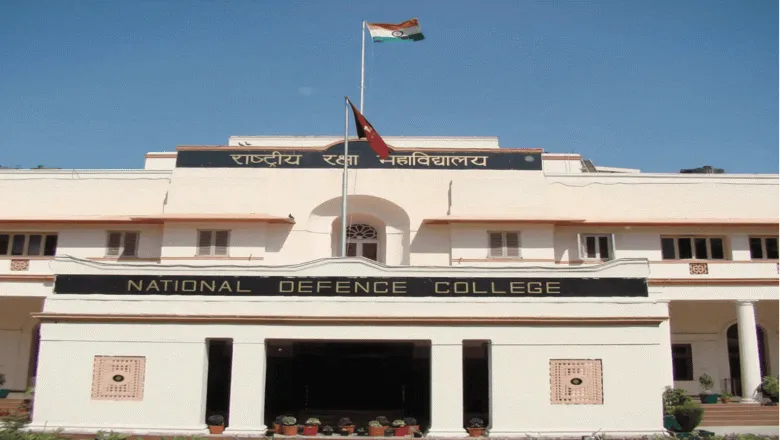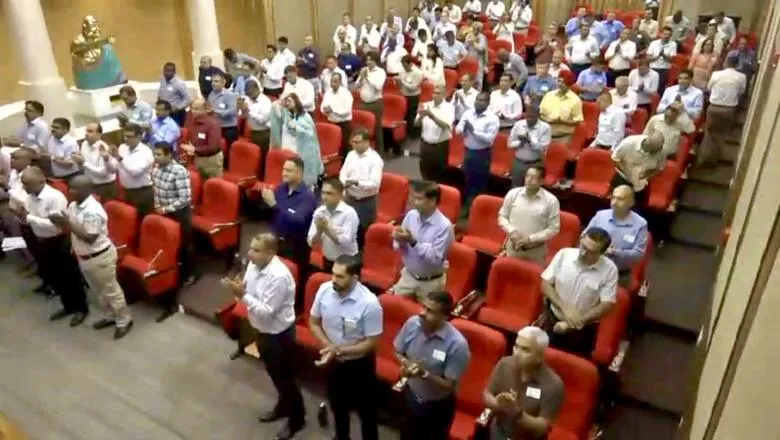This was an important opportunity to engage with a broad spectrum of senior military and civil leaders from India and across the globe," Dr McGarr observed, "By leading productive debate between the academy and practitioners on the role of intelligence in contemporary policymaking, the exchange helped to cement King's position as a globally recognised leader in the field of intelligence studies.
Dr Paul McGarr, Lecturer in Intelligence Studies
11 September 2025
Dr Paul McGarr on why trust turns intelligence into influence
Dr Paul McGarr was recently invited to address the senior leadership course at India’s prestigious National Defence College (NDC) in New Delhi.

His talk explored how superpowers have used intelligence in South Asia, and how intelligence can shape foreign policy across national contexts.
This year’s course (NDC-65) brings together senior leaders from the Indian Armed Forces, Civil Services and Police, alongside counterparts from more than 30 partner nations from Australia and Japan to Nigeria and the United States. Participants are at the forefront of national security decision-making, holding ranks at Brigadier level and above.
The National Defence College, founded in 1960, is India’s highest institution for the study of national security and strategy. With its global reputation, the College encourages collaboration and the strategic development of senior officers and civil servants.
In his lecture, Dr McGarr revisited the history of external intelligence activity in India during the Cold War. He described how the US and UK supported operations in Tibet and even placed surveillance devices in the Himalayas, while also attempting to shape India’s democracy through propaganda and disinformation. He argued that India balanced these pressures by working closely with Western agencies.
Dr McGarr highlighted two lessons. Firstly, that intelligence matters if it has the trust of policymakers. For example, when agencies lose that trust, as happened to the CIA under Nixon or India’s RAW after the Emergency, their influence fades. Secondly, political systems also matter. In democracies and hybrid regimes, intelligence chiefs can become powerful advisers, while in autocracies they may hesitate to challenge leaders.
Bringing his talk to the present, Dr McGarr noted how intelligence continues to shape India-Pakistan relations. From covert actions blamed on rival agencies to backchannel diplomacy that helped de-escalate conflict, intelligence remains central. He warned that while disinformation is not new, the speed and scale of today’s social media campaigns pose fresh dangers, particularly in a nuclear-armed region.


